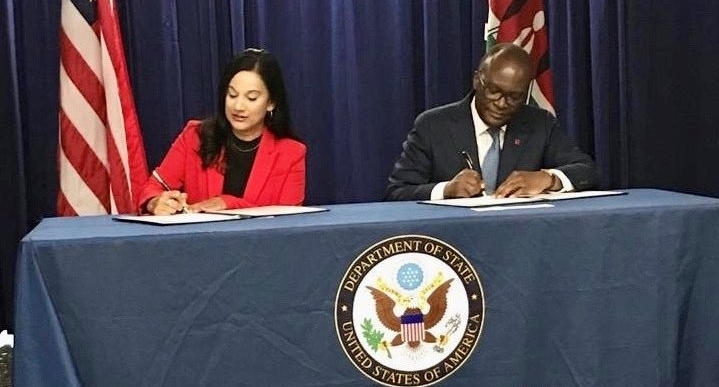US, Kenya add all-cargo rights to air transport pact
he United States and Kenya have signed an amendment to the US-Kenya Air Transport Agreement for adding seventh-freedom traffic rights for all-cargo op

February 07, 2020: The United States and Kenya have signed an amendment to the US-Kenya Air Transport Agreement for adding seventh-freedom traffic rights for all-cargo operations. The bilateral agreement signed at the US department of state in Washington DC will enter into force following an exchange of diplomatic notes.
Assistant secretary of state for economic and business affairs Manisha Singh and Kenyan cabinet secretary, ministry of transport, infrastructure, housing, urban development and public works James Macharia signed the deal.
The amendment has been applied on the basis of comity and reciprocity since it was negotiated on December 4, 2019.
The rights in the Amendment facilitate the movement of goods throughout the world by providing air carriers greater flexibility to meet their cargo and express delivery customers’ needs more efficiently. Specifically, the amendment allows US all-cargo airlines to fly between Kenya and a third nation without needing to stop in the United States, an important right if operating a cargo hub. Kenyan all-cargo carriers have reciprocal rights to serve the United States. This amendment further expands our strong economic and commercial partnership, while creating new opportunities for all-cargo airlines, exporters, and consumers. It will fully open the Kenyan air cargo services market to US carriers and represents one way in which the US government is delivering for US all-cargo carriers and American workers.
This amendment between both countries is also a step forward in liberalising the international civil aviation sector in Africa – a region that has the potential to be one of the fastest-growing in the world.
Meanwhile, October 28, 2019, marked the first anniversary of Kenya Airways (KQ) flying non-stop to New York route, and the carrier is eyeing growth in its cargo business on this route. The carrier, which launched directs flights to the JFK International Airport last year, has so far ferried 105,000 passengers on the route, translating to a cabin factor of 75 percent largely in line with what it had expected within the first year of commencing the flights.


